What's On This Page?
ToggleThe role of diet in Hashimoto’s is important and controlling food intolerances, and histamine-containing foods is critical. You probably think of histamine as a bad thing that makes you itch and sneeze, and you’re not wrong. Lately, however, histamine has been found to be a neurotransmitter! It’s part of the hormonal system that wakes you up, and has very complex effects on the body.
Minimizing histamine-containing foods is different than completely blocking histamine in your body. By the end of this article, you will have more clarity about this complicated intersection of histamine and your health.
If you have Hashimoto’s Thyroiditis or what I call Hashi’s for short, or ANY autoimmune disorder, the importance of my article this cannot be underestimated. I worked very hard on it to try and help you. Please share it with anyone who will benefit.
The Histamine Connection
Individuals navigating the challenges of Hashimoto’s Thyroiditis often find themselves at the crossroads of various dietary considerations, particularly concerning histamine.
The intricate relationship between dietary histamine intake and the progression of autoimmune conditions like Hashimoto’s is gaining traction in medical research. For you, it may be as simple as needing an antihistamine every day for itch, or for a runny, stuffy nose. You may not know why you feel better on an antihistamine, but you do. I can explain why.
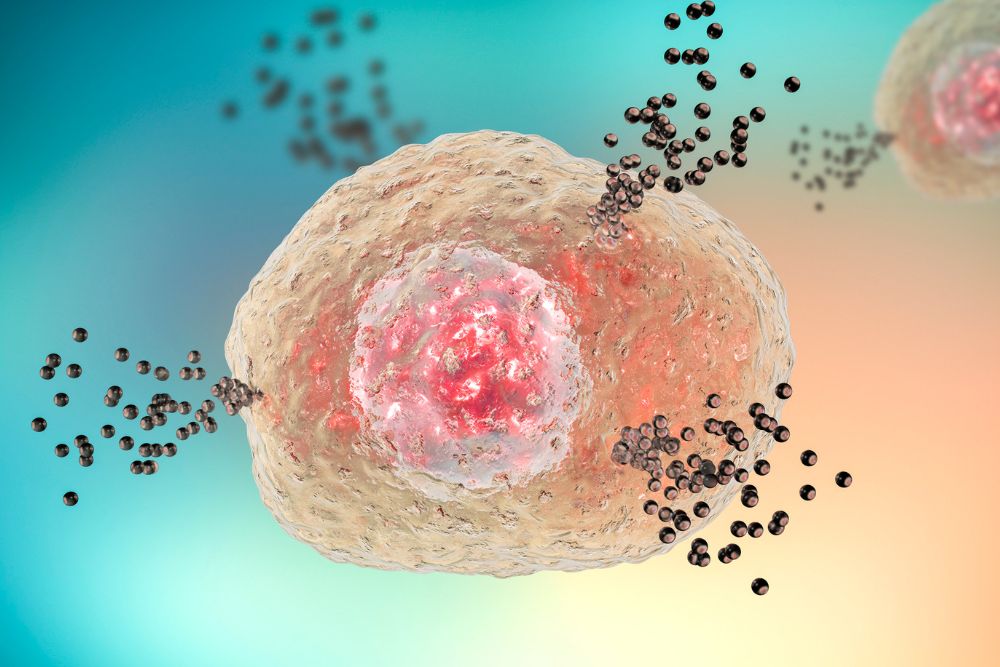
Not everyone needs or uses an antihistamine. But those drugs are to manage histamine release from your mast cells which sometimes occurs in autoimmune disorders.
This comprehensive article I’ve written explores the nuanced impact of histamine-containing foods on Hashimoto’s Thyroiditis, but you can replace that disorder with any other autoimmune disorder and that’s because histamine annoys ALL autoimmune disorders!
I’m just focusing on Hashimoto’s because I am a thyroid expert, and wrote a book on it after experiencing hypothyroidism and iron deficiency myself. After I cured myself, all by myself, I created a book to help others, and a few years later, I made a custom line of thyroid supplements – two of which are fully patented by the US Patent & Trademark office! I’m very proud of that – it’s because they WORK.
I will later tell you about DAO enzyme, this is something I do not sell or have, but there are several high-quality brands available online (should you want it).
First Things First: What is Histamine Intolerance?
Histamine intolerance, a condition characterized by the body’s inability to efficiently break down histamine, leads to an array of symptoms ranging from digestive discomfort to allergy-like reactions. When you hear the word “food intolerance” it is closely associated with histamine intolerance. Not every food intolerance is a histamine intolerance, however, the symptoms virtually overlap!
So if you think you have a dairy intolerance which is a food intolerance the symptoms will look a lot like histamine intolerance. It probably is! Dairy and cheese are high in histamine. Dairy is a histamine-containing food.
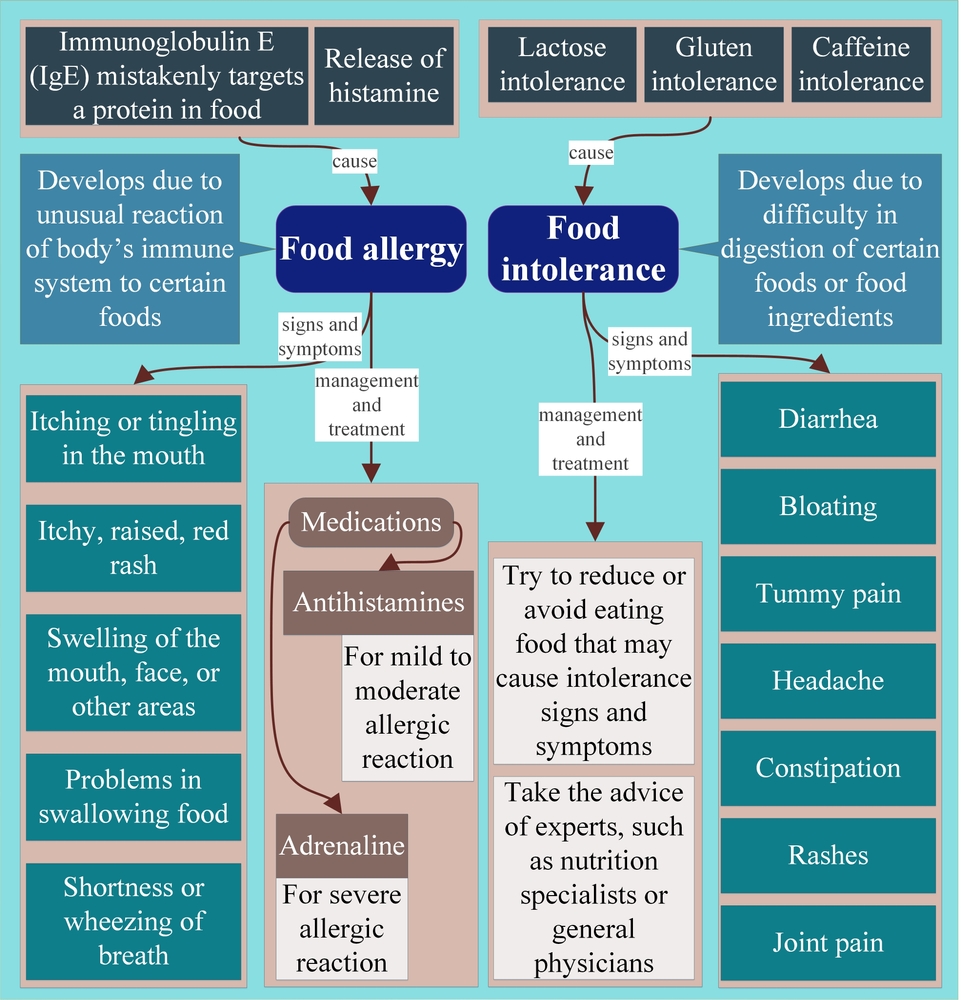
It’s essential to distinguish between histamine intolerance and histamine intoxication, the former being an individualized response to histamine-rich foods and certain medications that either promote histamine release or inhibit the enzyme diamine oxidase (DAO), essential for histamine breakdown. Despite diagnostic challenges, understanding histamine intolerance is pivotal for individuals with Hashimoto’s, as symptoms often overlap, complicating symptom management.
- The Dual Role of Histamine in Hashimoto’s Thyroiditis
Histamine plays a critical role in inflammatory responses, which can exacerbate the autoimmune activity against the thyroid gland in Hashimoto’s. Furthermore, histamine’s impact on gut health — particularly its contribution to gut inflammation and increased intestinal permeability or “leaky gut” underscores the importance of managing dietary histamine. The leaky gut occurs in part due to faulty tight junctions, which aren’t so “tight” and allow the antigens to slip out of your intestinal tube!
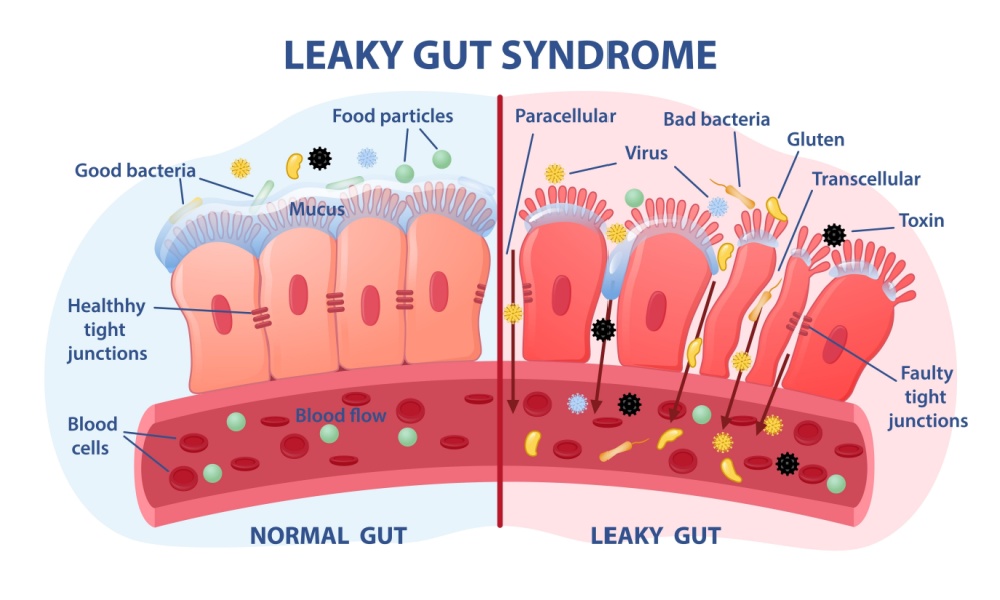
By potentially worsening the autoimmune response, histamine can intensify the challenges faced by those with Hashimoto’s, making dietary management a key aspect of symptom relief and overall health improvement.
- Key Dietary Strategies for Managing Histamine Intake
To mitigate the impact of histamine on Hashimoto’s symptoms, it’s crucial to be mindful of dietary choices. Here are specific strategies to consider:
Identify and Limit High-Histamine Foods: Familiarize yourself with foods high in histamine, such as aged cheeses, fermented products, alcohol, smoked meats, and certain fish, and moderate their intake.
Monitor Individual Responses: The impact of histamine varies greatly among individuals. Tailored dietary management, ideally under the guidance of a healthcare provider experienced in autoimmune conditions, can significantly benefit symptom management.
Supplement Wisely: For some, supplements like DAO enzyme enhancers or antihistamines may offer symptom relief.
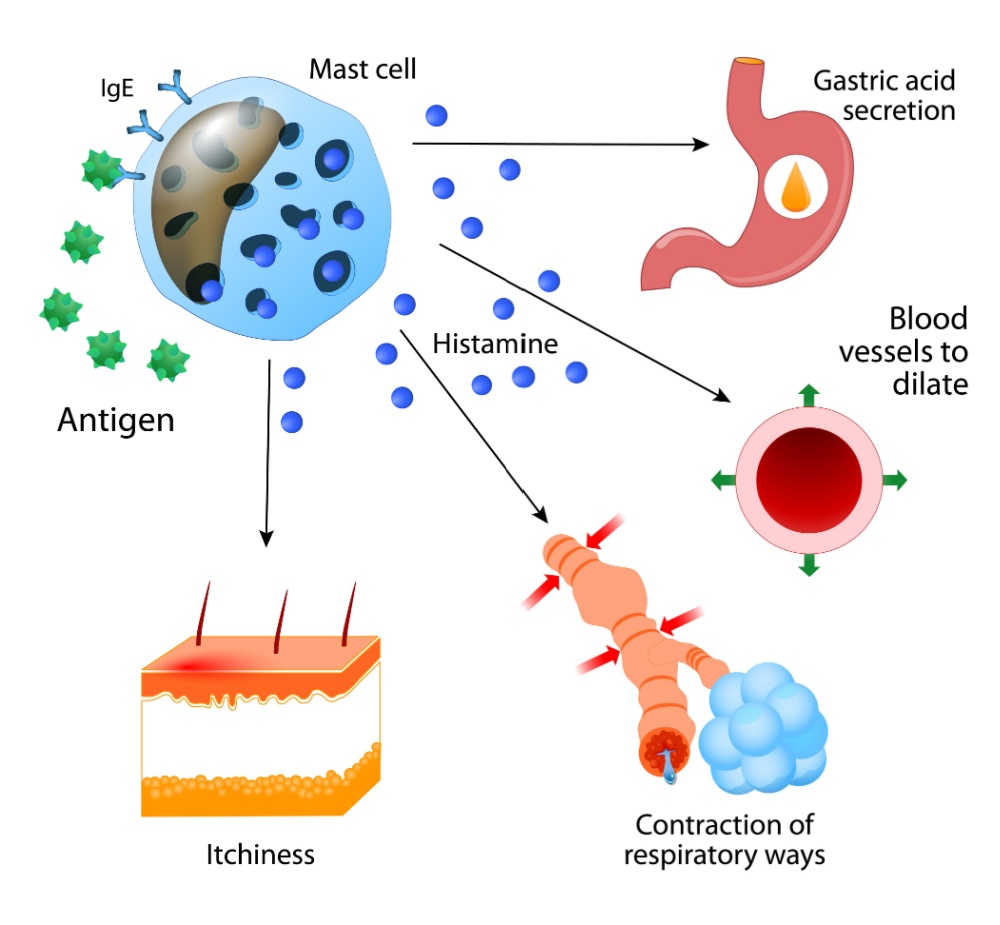
- The Significance of Nutritional Management in Hashimoto’s Thyroiditis
A landmark study published in the International Journal of Molecular Sciences in May 2022, titled “Nutritional Management of Thyroiditis of Hashimoto,” highlights the complexity of identifying an optimal diet for managing Hashimoto’s. The research underscores the importance of anti-inflammatory foods and examines the role of environmental factors, dietary components, chronic inflammation, and gut microbiota in the disease’s progression. Notably, the study also emphasizes the potential benefits of vitamin D and melatonin in supporting thyroid function, suggesting that a targeted dietary approach could significantly improve outcomes for individuals with Hashimoto’s.
Digestive Enzymes To the Rescue
For individuals with histamine intolerance, the focus typically centers on managing the body’s histamine levels and enhancing the breakdown and elimination of histamine from the body. While the primary enzyme associated with breaking down histamine in foods is diamine oxidase (DAO), there’s some interest in how other digestive enzymes, including DPP-IV and proteases, might indirectly support individuals with histamine intolerance.
Let me talk about all 3 of these right now starting with the most important one DAO.
DAO Breaks Down Histamine in the GUT
The enzyme most closely associated with the breakdown of histamine in the digestive tract is diamine oxidase (DAO). DAO is available as a dietary supplement and when you take it, it’s responsible for degrading histamine found in foods, thereby preventing it from entering the bloodstream and causing the symptoms associated with histamine intolerance.
You may wonder if you make this enzyme or not. You do!
Diamine oxidase (DAO) is an enzyme primarily produced in the small intestine, not the stomach. It’s crucial for breaking down dietary histamine to prevent excessive absorption into the bloodstream.
We can run low on it. Low levels of DAO can lead to histamine intolerance, characterized by symptoms like headaches, itching (urticaria), digestive issues, skin rashes, and other signs of histamine intolerance.
Factors that can cause low DAO levels include:
- Genetic Variations: Some individuals may have genetic differences that affect the production or function of DAO.
- Gastrointestinal Disorders: Conditions like inflammatory bowel disease (IBD), celiac disease, and leaky gut syndrome can damage the intestinal lining where DAO is produced, leading to reduced enzyme levels.
- Medications: Certain medications, including NSAIDs, antidepressants, and antihistamines, can interfere with DAO activity or production. In other words, these medications act like drug muggers of your DAO enzyme!
- Dietary Factors: A diet high in histamine or histamine-releasing foods may overwhelm the body’s capacity to break down histamine, impacting symptoms.
- Alcohol and Other Factors: Alcohol consumption and certain bacterial overgrowths in the gut can also inhibit DAO activity or production.
In these cases, taking a DAO enzyme can help. Here is WEB MD’s site. You can improve the situation by also taking Vitamin C or quercetin. These two together should help stabilize mast cells , especially if you simultaneously cut down on histamine-containing foods.
In individuals with low levels of DAO, consuming histamine-rich foods can lead to an accumulation of histamine, resulting in symptoms such as digestive upset, headaches, skin rashes, and other allergy-like reactions. That’s why I wrote the ebook Hashi No Nos, which you can download and read for free using the link above.
Apart from histamine breakdown, other digestive enzymes play critical roles in the digestion and absorption of nutrients. For example, proteases break down proteins, lipases break down fats, and amylases break down carbohydrates.
Efficient digestion can support gut health, which is particularly important in autoimmune conditions, as it can help reduce gut inflammation and potentially minimize the autoimmune response. Let’s talk about those next.
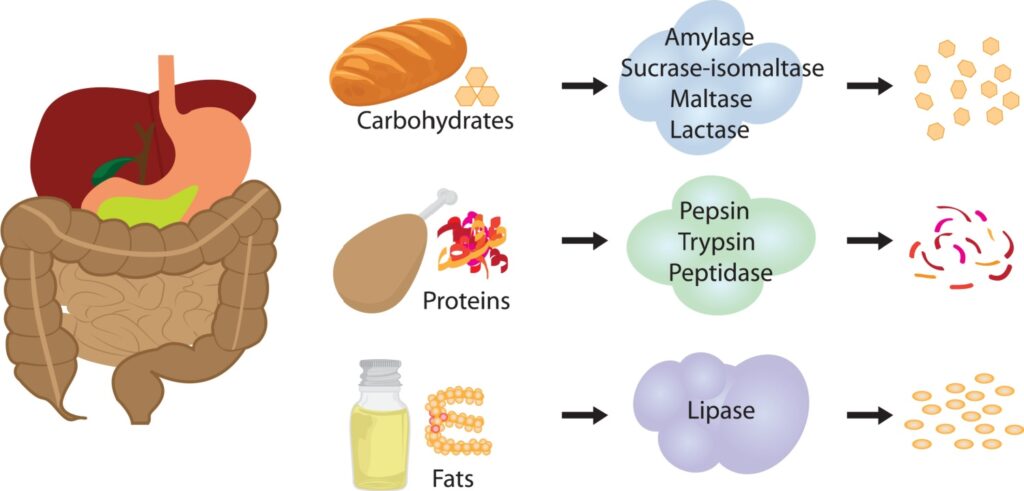
Digestive enzymes are crucial for people with autoimmune diseases because they often have a compromised gut barrier (referred to as a leaky gut) which can lead to increased inflammation and more profound autoimmune responses. It’s because teeny tiny food particles that aren’t completely broken down leak out of the gut ‘tube’ and into your bloodstream. And this creates a head-to-toe self-attack as your immune system chases down the antigens that aren’t supposed to be there.
So digestive enzymes are important. It’s the heart of the ingredients in my patented supplement HashiScript. 
How Proteases Might Help Hashimoto’s
Proteases facilitate the breakdown of proteins into their constituent amino acids, improving overall digestion and nutrient absorption. While they don’t directly degrade histamine, their role in digestive health can have secondary benefits for those with histamine intolerance:
Supporting Gut Health: Efficient protein digestion can reduce undigested protein particles in the gut, which may lower gut inflammation and the risk of immune system overactivity, potentially reducing histamine production and release.
Alleviating Food Intolerance Symptoms: By improving the breakdown and assimilation of dietary proteins, proteases may help alleviate some symptoms associated with food intolerances, indirectly benefiting those with histamine intolerance.
How DPP-IV Might Help
DPP-IV is known for its role in breaking down proline-rich peptides, such as those found in gluten and casein. While DPP-IV is not directly involved in histamine breakdown, its support for the digestive process could have indirect benefits:
Improved Gut Health: By aiding in the digestion of difficult-to-break-down proteins, DPP-IV might help reduce gut inflammation and permeability (leaky gut), factors that can exacerbate histamine release and immune responses.
Potential Reduction in Histamine Release: Better digestion and a healthier gut environment may lead to a reduction in the immune activation within the gut, potentially decreasing the release of histamine from mast cells located in the gut lining.
Betaine HCL
This is another consideration, not for histamine, but for meal breakdown. It’s not for everyone, but I don’t want to leave the topic of dietary management without giving this honorable mention here. For more on the topic of acid, gastrin and betaine HCl supplements, CLICK HERE.
Considerations
It’s important to note that while DPP-IV and proteases can support digestive health, they are not a direct treatment for histamine intolerance or Hashi’s.* The FDA would have me suggest autoimmune drugs instead. I just want you to know that a qualified medical doctor can prescribe a cocktail of expensive drugs for auotimmune diseases.
These include NSAIDs like ibuprofen or naproxen, or glucocorticoids like prednisone. They may use DMARDs like methotrexate. They may use biologics like Enbrel® to block TNF (tumor necrosis factor). These drugs are used by many people, and they do come with a host of hefty side effects!!! This is why people search on Google for natural methods to control autoimmunity.
So I think simple things like I’ve suggested today are a good start and can be used adjunctively to help you reach your desired objective (feel better, and experience fewer flare-ups).
You should certainly talk to your doctor about the following comprehensive management plan that I’ve outlined below. Feel free to print and take this article to doc! What you’re doing is asking for a more holistic approach to managing Hashimoto’s thyroiditis.
Here is an 8-Step Strategy to Reduce Histamine and Ease Symptoms
(for Hashimoto’s or ANY autoimmune disorder)
- Download Hashi No Nos’ to get more information (it’s free)
2. Reduce or eliminate histamine-containing foods from your diet
3. Eat more anti-inflammatory foods or take up a keto/carnivore diet
4. Try DAO enzyme supplements
5. Try HashiScript® or some other digestive enzyme blend of your choice
6. Take Vitamin C about 250 mg a day
7. See your doctor for routine THYROID LAB TESTS and physical evaluations
8. Control and manage stress because excessive cortisol is bad. Here’s MY ARTICLE explaining how bad this can be for Graves’ disease and Hashimoto’s thyroiditis.
Summary
The journey through Hashimoto’s Thyroiditis is deeply personal, and experienced differently by every person with it. Histamine plays a strong role in driving flare-up. So does peroxide …it can age you quickly – LEARN WHY in this article.
With dietary management and a reduction in histamine-containing foods, your symptoms may abate. Adding in a DAO enzyme supplement along with other digestive enzymes can reduce antigenic mayhem in your body, and equate to fewer episodes.
Embracing a holistic approach to health that encompasses nutritional management, lifestyle modifications, and appropriate medical interventions can pave the way for a more balanced and healthier life with Hashimoto’s. If you think I’ve missed something, please feel free to email me at scriptessentials@gmail.com
I’m here to research, and learn what I can. I am wishing you the best of health, today and always!

Suzy Cohen, has been a licensed pharmacist for over 30 years and believes the best approach to chronic illness is a combination of natural medicine and conventional. She founded her own dietary supplement company specializing in custom-formulas, some of which have patents. With a special focus on functional medicine, thyroid health and drug nutrient depletion, Suzy is the author of several related books including Thyroid Healthy, Drug Muggers, Diabetes Without Drugs, and a nationally syndicated column.

